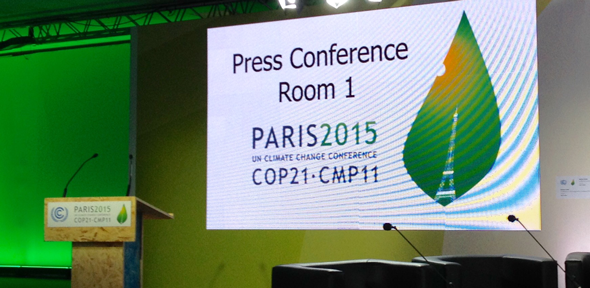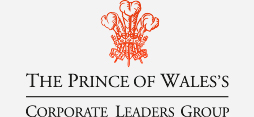
22 December 2015 – Reflecting on the outcome of COP21, Eliot Whittington welcomes an agreement that is far more ambitious than predicted and has put to bed the idea that the world is not willing to act on climate.
COP21 has raised the bar for climate action
By Eliot Whittington, Deputy Director, The Prince of Wales's Corporate Leaders Group
22 December 2015
In December 2007, over 150 business leaders, led by The Prince of Wales’s Corporate Leaders Group, issued the Bali Communiqué – a call for “a sufficiently ambitious, international and comprehensive, legally binding United Nations agreement to reduce greenhouse gas emissions”.
Eight years later, the first universal, legally binding agreement on climate change was adopted in Paris, after two weeks of intense negotiations at COP21. The Paris Agreement, which is global, binds countries to a long-term goal of net zero emissions “in the second half of the century,” and requires them to set progressively stronger commitments every five years from 2020. It also includes measures to hold countries to account, language to facilitate carbon markets and commitments to increase support for adaptation. With the inclusion of an aspiration to keep warming below 1.5°C, it’s clear that what countries have agreed to is to keep climate change to its lowest possible levels.
Just days after its adoption, the Paris Agreement was welcomed by over a thousand businesses, investors, cities and regions. By joining the Paris Pledge for Action – a distant echo to the Bali Communiqué – they promised to meet or exceed the ambition set by COP21.
The Paris Agreement does not solve in itself the problem of runaway climate change, but it is far more substantive and ambitious than almost anyone predicted and has put to bed any idea that the world collectively is not willing to act. It has raised the bar for what can be considered possible and it has signalled that a genuine and deep economic transition is underway.
The process of securing that agreement is also important. It came about with the visible support and encouragement of 150 heads of state and government, with civil society marches that mobilised over 780,000 people around the world, and with the moral authority of His Holiness, the Pope, and other religious leaders. Not to mention the enthusiastic support and engagement of our own Patron, HRH The Prince of Wales, who urged governments to take action at the opening ceremony of COP21 and reminded them that “we have the knowledge, the tools and the money” to tackle climate change.
No less essential in this process was the sustained and concerted leadership from a huge and growing cohort of corporate leaders and investors making real commitments to reshape their business and pave the way for a new climate economy.
Of course a comprehensive global agreement heralded by an international movement, while incredibly powerful as a signal, does not change everything. There are economic fundamentals and policy frameworks that have not yet moved. But a Rubicon has been crossed, and every policy debate on climate change, every technology development with carbon implications will have a new yardstick going forward.
It will take commentators and analysts some time to work through the implications. Across Europe, governments, including that of the UK, now have to realise that they need to revisit their plans and raise their game. And leading businesses can go back to their plans and redouble their efforts to develop strategies that can thrive in a net-zero economy.
The Corporate Leaders Group (CLG) will be at the heart of taking this discussion forward, because we know the business voice has been fundamental to securing such a positive outcome. COP21 saw the coming of age of a new positive and powerful business voice – most loudly articulated by the CLG, and its partners in the We Mean Business coalition. There is a clear desire from many governments for a partner in business to deliver a zero-carbon economy; and there are a growing number of businesses who are showing what that economy can look like.






